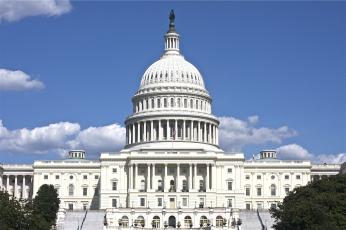
U.S. refiners and petrochemical manufacturers maintain close partnerships with government agencies including the Department of Homeland Security and the U.S. Coast Guard to keep our facilities and surrounding areas secure. AFPM, our members and these agencies work together to implement regulations that keep our critical infrastructure safe, including the Chemical Facility Anti-Terrorism Standards (CFATS), the Marine Transportation Security Act (MTSA) and the Transportation Worker Identification Credential (TWIC).
Chemical Facility Anti-Terrorism Standards (CFATS)
CFATS was created in 2007 under the Department of Homeland Security to regulate security at facilities with chemicals of interest. CFATS requires security vulnerability assessments (SVAs) and site security plans (SSPs) that are submitted to the Department of Homeland Security for approval. AFPM supports maintaining the current CFATS program. CFATS is a responsible and effective chemical facility security regulation that protects our nation’s critical manufacturing sites.
Marine Transportation Security Act (MTSA)
MTSA is designed to protect the nation’s ports and waterways from terrorist attacks by enforcing the completion of security assessments, development of security plans and the implementation of additional security protocols. AFPM has supported MTSA since it was first created in 2002.
Transportation Worker Identification Credential (TWIC)
TWIC requires biometric security credentials for individuals seeking unescorted access to secure areas of facilities and vessels and for all mariners holding Coast Guard-issued credentials or qualification documents. TWIC ensures that those individuals who pose a threat do not gain unescorted access to secure areas of the nation’s maritime transportation system.
Pagination
- Previous page
- Page 2





